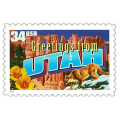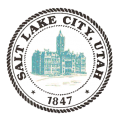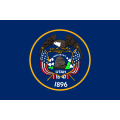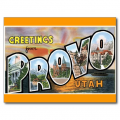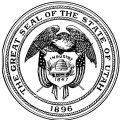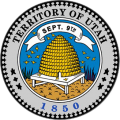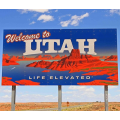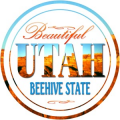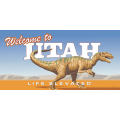Licensed practical nurses (LPNs) provide bedside care for patients. They also independently conduct a number of medical tasks like recording vital signs, dressing wounds, and monitoring equipment. Licensed practical nurses work in a number of healthcare settings, frequently under the supervision of registered nurses (RNs) or physicians.
Utah
We've organized a comprehensive list of Utah nursing schools. Below you'll find information on specific nursing programs such as LPN certificates and ADN, BSN, and MSN degrees. You'll also find a profile of nursing education and careers in each major Utah city.
Utah’s aspiring nurses can pursue one of four distinct nursing roles: certified nursing assistant (CNA), licensed practical nurse (LPN), registered nurse (RN), or advanced practice registered nurse (APRN). Each role carries a unique mix of job responsibilities, educational requirements, and compensation. Utah is home to over 30 accredited nursing schools, so regardless of role, students can select from a breadth of quality nursing programs.
Salt Lake City has a dozen accredited nursing schools. These colleges and universities offer a diverse range of nursing programs, from brief certificates to undergraduate and graduate degrees. The city’s aspiring nurses can pursue one of four nursing roles: certified nursing assistant (CNA), licensed practical nurse (LPN), registered nurse (RN), or advanced practice registered nurse (APRN).
The Provo / Orem metropolitan area has a half-dozen accredited nursing schools. These institutions offer prelicensure programs for four distinct nursing roles: certified nursing assistant (CNA), licensed practical nurse (LPN), registered nurse (RN), and advanced practice registered nurse (APRN).
Ogden’s aspiring nurses can choose from several different nursing career paths. Each nursing role carries a distinct set of responsibilities, educational requirements, and compensation.
Certified nursing assistant (CNA)
Master of science in nursing (MSN) degree programs enable Utah’s existing registered nurses (RNs) to enter specialized fields like family practice nursing, nursing education, and nursing administration. Upon completion of their studies, many MSN candidates earn an advanced practice registered nursing (APRN) title like nurse practitioner, nurse midwife, or nurse anesthetist.
Utah’s healthcare providers increasingly expect registered nurses (RNs) to perform a broad range of independent tasks and to fill critical managerial roles. As a result, many top hospitals and healthcare centers actively seek RNs with at least a bachelor of science in nursing (BSN) degree. Utah has two types of BSN programs: prelicensure programs that prepare aspiring nurses for initial licensure, and RN-to-BSN programs that help existing nurses with only an associate’s degree earn their bachelor’s degree.
An associate’s degree in nursing (ADN) program provides a streamlined path to initial licensure as a registered nurse (RN). RNs comprise the majority of Utah’s nursing workforce. Their responsibilities include independently administering healthcare activities and supervising the work of junior nurses, like licensed practical nurses (LPNs) and certified nursing assistants (CNAs).
Licensed practical nurses (LPNs) provide bedside care for patients. They also independently conduct a number of medical tasks like recording vital signs, dressing wounds, and monitoring equipment. Licensed practical nurses work in a number of healthcare settings, frequently under the supervision of registered nurses (RNs) or physicians.
The total financial cost of completing a nursing program can be significant. Nursing students should understand the various cost components in depth before selecting a nursing school and program. The most significant cost components of nursing education are tuition, books and supplies, room and board, and miscellaneous living expenses.
Private nursing schools are funded primarily by students, alumni, and private organizations. They receive no direct financial support from the state government. Private school students are often willing to pay a premium for their education, since these schools offer enhanced prestige, lower student-to-teacher ratios, and a more personalized learning environment. Utah’s private nursing schools offer prelicensure programs for two roles: registered nurse (RN) and advanced practice registered nurse (APRN).

